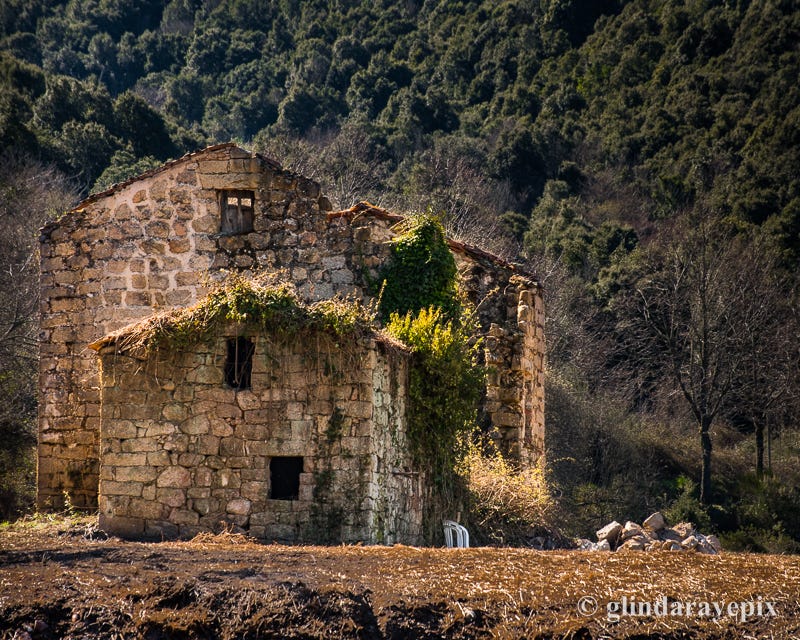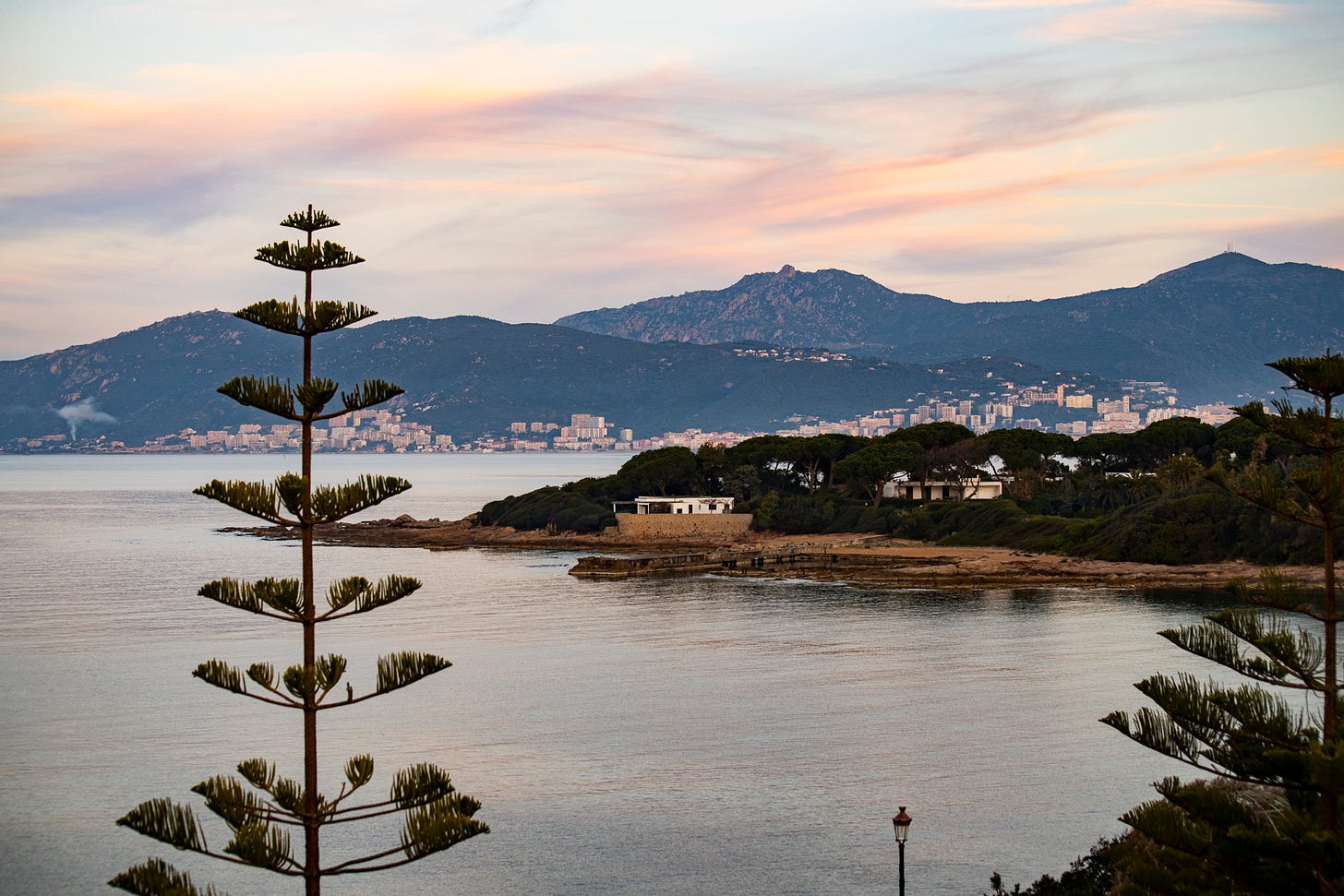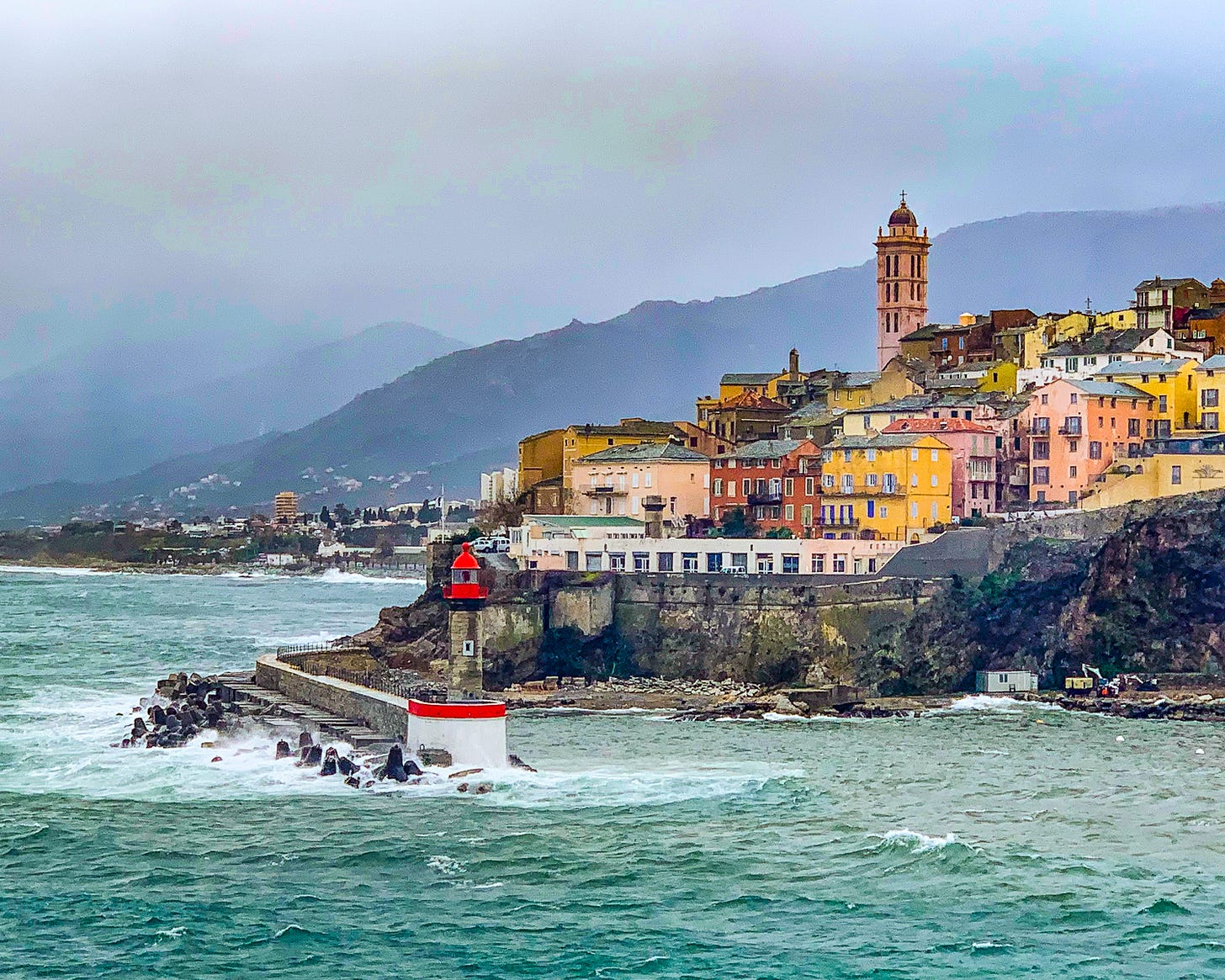Several years ago on a hot summer day, two young men, lifelong friends, were sitting in a café in the South Corsican town of Sartène. Cafés like this tended to be drab, sleepy affairs, with a trickle of plainly dressed old men interspersed among youthful herders in from the fields. There were no women about, of course, and no feminine touch to brighten the décor or alleviate the boredom.
Eventually, the friends’ conversation turned to music and, more specifically, to the relative merits of the guitar and the mandolin. Disagreement led to argument, and argument, in the Corsican manner, escalated into uproar. Before either of them knew what they were doing, they’d leapt up from the table, taken out their pistols, and shot each other dead.
Which in the bizarre world of the Corsican Vendetta, was a fortunate thing for their families. Because if either had survived, then the men of the victim’s family would have been honor-bound to kill him. And then his family would have been compelled to murder the first victim’s brother. And then the two families, goaded onward by a thousand years of history and directed by the angry, older matrons on either side, would have gone back and forth until all of the males in one clan or the other—brothers, fathers, grandfathers, uncles, cousins, and brothers-in-law—were destroyed.
Corsican Vendettas have been triggered for the pettiest, even zaniest of reasons—an unpaid bar tab, a trespassing sheep, the ownership of a chestnut tree (no one eats chestnuts on Corsica), a wayward glance at a daughter in a public square—yet have often lasted for decades and consumed dozens of lives. The church condemned the practice, and governments executed the murderers as fast as they could catch them—unless, of course, the local priest or magistrate was a family member—but nothing could dissuade the Corsicans involved from finishing each other off. So much so, that a bride’s financial dowry paled in importance, if she could just bring a half-dozen armed brothers into the marriage.
On many occasions, a marked man took off into the thick maquis that overgrew the steep, inhospitable slopes of the Corsican mountains, living rough off bread and sausages from his family and the pittance he could earn as a bandit preying on traders and travelers. Foreigners and tourists were supposed to be spared, unless they were unlucky enough to get caught in the crossfire.
Over the centuries, such bandits d’honneur, as they were called, multiplied into the hundreds and spread all over the island. When the less honorable among them escaped to Marseille on the French mainland, they organized themselves into the Union Corse, one of the nastier criminal networks in the world. Thus the French Connection between the remote, barely civilized uplands of Corsica and the grimy, addicted alleyways of New York City.
Nowadays, many things have changed.
The French authorities, prodded along by the embarrassment of such poverty in their most picturesque island department, have driven paved, winding roads and elaborate tunnels up into the most isolated mountain villages. Developers—having saturated the coasts with their cheap, boom-and-bust holiday construction—have followed. Yet, when you drive through a once violent, dusty hamlet like Bocognano, Carbini, or Filitosa, there are no people about, and no one comes to their door. Unless the locals know you or hear from a mutual friend, there’s simply no good that can come from opening up to the outside world.
Along the coasts, in the principal cities like Ajaccio, Bastia, and Porto Vecchio, there exists another world entirely, transplanted from the French mainland, with all of the dour, determined provincialism of bourgeois colonies the world over. “The Bonaparte”, as the French Emperor Napoleon is known in these parts, was born and raised in Ajaccio on the western littoral. Yet for all of his urban, middle class roots, he grew inside his pregnant mother Letizia, as she fled with her other children into the central mountains to save them from some vindictive enemy of his father.
Those central mountains run on a rough diagonal spine from northwest (L'Île-Rousse and Calvi) to southeast (Bonifacio and Porto Vecchio) and split the island into a muddle of two histories and cultures. The Italian city states of Genoa and Pisa squabbled over the north and east, while the Saracens of Arabia and the Barbary Pirates of Tunisia terrorized the west and south in search of slaves and plunder. Needless to say, the obstinate Corsicans cared for neither and retreated up to the relative safety of the highlands around their historical capital, Corte.
With a sturdy enough car, you can retrace these routes, through fields of oak and cork, past massive granite boulders, and over bitterly cold, fresh-water torrents. The air literally sparkles in the massifs, thick with the scent of the eucalyptus, lavender, juniper, and myrtle that make up the maquis.
This is prime ambush country, and you’re welcome to let loose your imagination, but the only harm you’ll experience might come from ennui at the cuisine in these parts. Because with so little decent scrub for stock herding and an inbred aversion to settled farming, the food of the Corsicans is about as simple and unoriginal as you might imagine.
So why would anyone want to visit such a backward, violent country? Why would an outsider tolerate the highest murder (and lowest conviction) rate in Europe? The easy answer is that tourism here sidesteps any real local risk in delivering one of the most relaxed and beautiful rest stops your life’s journey will ever afford.
But the real answer might lie in the adventures of Dorothy Carrington, the marvelous English archeologist and author of the book “Granite Island: A Portrait of Corsica”, one of the best travelogues we’ve ever read. In the 1930s, Dorothy came to visit and, when her husband lost interest and left, stayed on alone. Over the next fifty years, she drove, bussed, and hitchhiked solo into every cranny of the island, with hardly a thought for her personal safety. Along the way, she uncovered a wealth of ancient legend and tradition that bubbled so much closer to the surface than in the modern, hyper-organized, hyper-suppressed London she’d left behind.
And that’s the point:
In Corsica, life slows to a simple crawl, and so can you. At that speed, free of distractions and deadlines, who knows what depths your imagination might plumb? Such, in fact, is the unacknowledged secret of rural tourism the world over, from Corsica to Kentucky, to the mountain villages of Switzerland and Morocco, to the Western Ghats of Indian Kerala. As Michael Crichton so brilliantly explained in his book “Travels”, some of life’s most fascinating journeys will take you no farther than into your own soul. And you can sense this on an island like Corsica.
It’s the ultimate romantic getaway.












I don't know about the real place but this virtual tour triggered my imagination to the extent I could gulp in the silent peaceful air and fill my eyes with views of vast open land and seas..:)
Regular life has gotten in the way of my travel reading. Glad I’m caught up. I’m happy I can always track what I have missed through your blog.